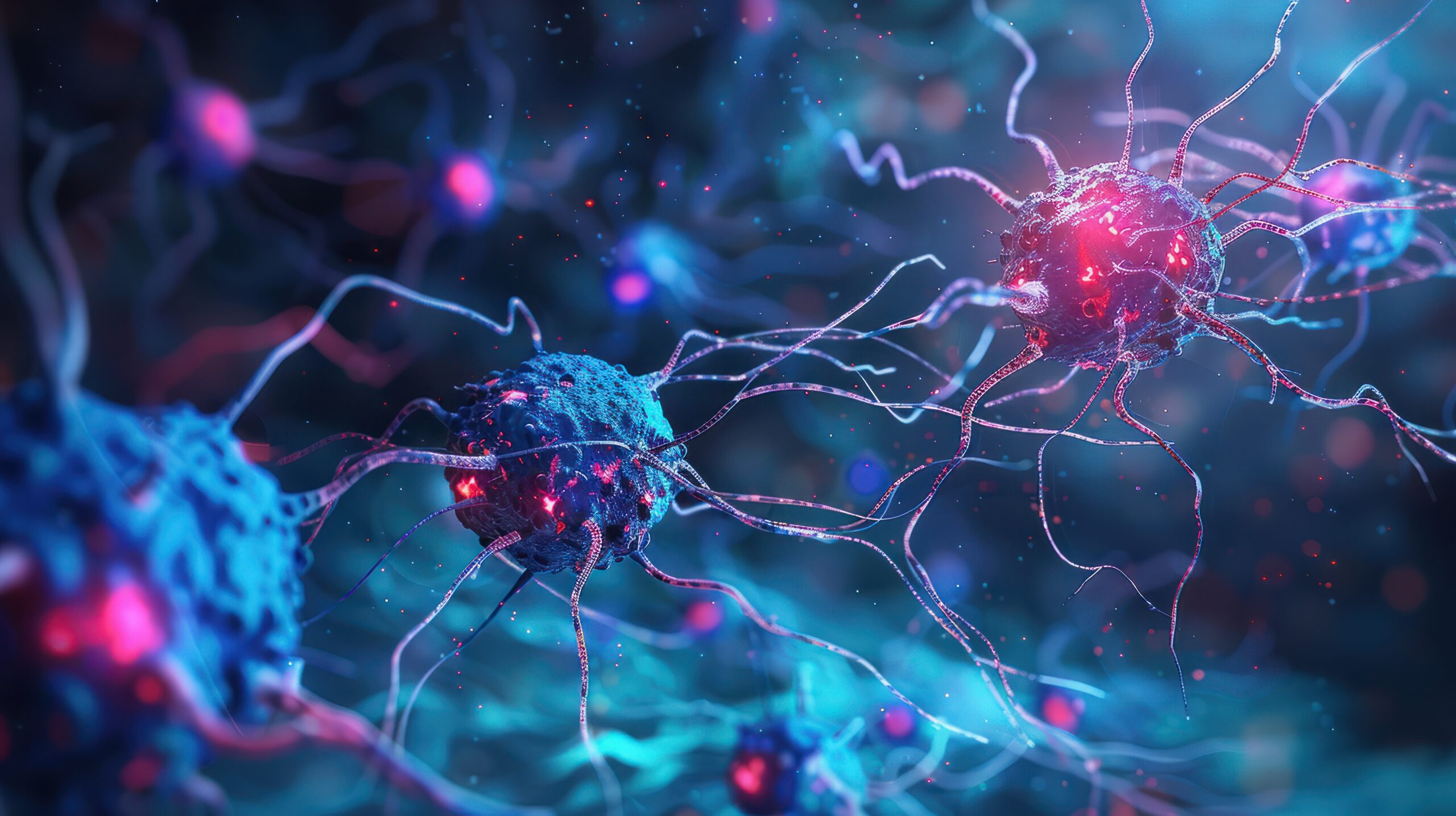Autism and Developmental Disorder Care: The Role of Stem Cell Therapy

Welcome to our comprehensive guide on innovative treatment approaches for autism and developmental disorders, where we explore the intricacies of current methodologies and shine a spotlight on the transformative potential of stem cell therapy.
UNDERSTANDING AUTISM AND DEVELOPMENTAL DISORDERS
Autism and developmental disorders represent a spectrum of neurological challenges, affecting individuals in unique ways – stemming from complex interactions of genetic and environmental factors, these conditions manifest in a variety of developmental nuances which impact cognitive, social, and behavioural functions.
SYMPTOMS
Communication Challenges:
• Difficulty in verbal and non-verbal communication.
• Limited or absent eye contact.
Social Impairment:
• Struggles with social interactions and forming connections.
• Difficulty understanding and responding to social cues.
Repetitive Behaviours:
• Engaging in repetitive movements or activities.
• Resistance to changes in routines.
Sensory Sensitivities:
• Heightened or reduced sensitivities to sensory stimuli.
• Overreacting or underreacting to sensory input.
CURRENT TREATMENTS
Conventional approaches to autism and developmental disorders encompass a diverse range of therapeutic interventions, behavioural therapies, and medical support. While these methods aim to enhance the quality of life for individuals, ongoing research explores more targeted and personalised alternatives.
Behavioural Therapies:
Applied Behaviour Analysis (ABA): Focused on reinforcing positive behaviours through structured interventions.
Speech and Language Therapy: Aiding in the development of communication skills.
Educational Support:
Special Education Programs: Tailored to individual needs, providing focused academic and behavioural support.
Occupational Therapy:
Addressing sensory challenges and fostering adaptive skills.
Medications:
Antipsychotics: Examples include Risperidone (Risperdal) and Aripiprazole (Abilify) to manage challenging behaviours.
Antidepressants: Medications like Fluoxetine (Prozac) or Sertraline (Zoloft) may be prescribed to alleviate symptoms of coexisting conditions such as anxiety.
Social Skills Training:
Structured Programs: Teaching and reinforcing social cues and appropriate behaviours in various social situations.
Peer-Mediated Approaches: Involving peers to enhance social interactions and inclusion.
Sensory Integration Therapy:
Sensory-Based Activities: Engaging individuals in activities to help them process and respond to sensory stimuli appropriately.
Environmental Modifications: Adapting surroundings to accommodate sensory sensitivities.
Communication Devices and Augmentative Communication:
AAC Devices: Augmentative and Alternative Communication devices to assist non-verbal individuals in expressing themselves.
Visual Supports: Including visual schedules and communication boards to enhance understanding.
While these interventions contribute significantly to managing symptoms, the exploration of emerging therapies, such as stem cell therapy, represents a forward-thinking approach to addressing the root causes of these complex neurological conditions. Ongoing research aims to enhance the effectiveness of existing treatments and explore innovative options for
comprehensive care.
THE SCIENTIFIC MECHANISMS
Stem cell therapy takes a targeted approach, with stem cells injected precisely to stimulate the regeneration of damaged neural tissue. This meticulous intervention not only aims to alleviate symptoms but strives to address the root causes of autism and developmental disorders. The regenerative potential of stem cell therapy is pivotal, aiming not just to replace impaired cells but to actively stimulate the renewal of existing neural tissue.
Stem cells extend beyond mere cellular replacement, exhibiting anti-inflammatory properties and providing neuroprotection. In conditions where neural inflammation and oxidative stress play significant roles, such as in autism and developmental disorders, the multifaceted attributes of stem cells become invaluable. By modulating inflammatory responses and
promoting neuroprotection, stem cells present a holistic strategy for managing these complex conditions.
MULTIFACETED BENEFITS OF STEM CELL THERAPY
Neural Regeneration: Enhances cognitive function and potentially contributes to overall brain health.
Neuroprotective Effects: Slows down the degenerative process, offering stability in symptom management.
Anti-Inflammatory Properties: Creates an environment conducive to healing and neural recovery.
Holistic Approach: Improves the overall quality of life, addressing not only core symptoms but also non-core aspects of autism and developmental disorders.
CLINICAL EFFICACY:
Individual responses to stem cell therapy may vary. Some experience significant improvements shortly after treatment, while others observe gradual progress over an extended period. This nuanced response underlines the importance of personalised care and ongoing monitoring, tailoring the treatment approach to each unique individual.
STEM CELL THERAPY AT KANTSUGI
Behind our innovative approach is a team of international experts and collaborative research at Kantsugi. Rooted in medical expertise and guided by our values, we are committed to advancing autism and developmental disorder care, weaving together the principles of regenerative medicine and client-centric support.
WHAT TO EXPECT:
Personalised Care:
• Tailored treatment plans for individual needs.
• Ongoing monitoring adapting to the patient’s unique journey.
Comprehensive Consultation:
• Thorough assessment of medical history and symptoms.
• In-depth discussions addressing patient concerns and expectations.
Cutting-Edge Approach:
• Utilisation of the latest advancements in stem cell therapy.
• Meticulous and precise delivery of stem cells for optimal results.
Holistic Support:
• Beyond symptom management, focusing on overall well-being.
• Supportive care to enhance the quality of life.
CONSULTATION PROCESS: A MORE THOROUGH UNDERSTANDING
Our experienced medical professionals conduct a comprehensive assessment, considering unique medical history and symptoms. This in-depth consultation aims to tailor the stem cell therapy approach to individual needs.
TREATMENT DURATION
The duration of stem cell therapy for autism and developmental disorders can vary. Some individuals may experience immediate improvements shortly after treatment, while others may observe gradual progress over an extended period. This variability emphasises the importance of ongoing monitoring and personalised care to ensure the most effective and beneficial outcomes.
FOR EXPERTS: RESEARCH AND WHITE PAPERS
For experts in the field seeking more information on current research and white papers related to stem cell therapy for autism and developmental disorders, please visit our Research and Publications section. Stay informed about the latest advancements and scientific insights in regenerative medicine for these complex neurological conditions.

The Future of Regeneration.
View pages
Our Treatments
Book an appointment